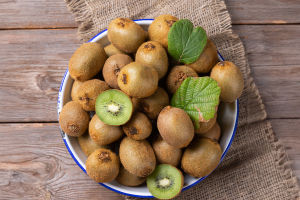Tropical fruits aren't just delicious—they're powerful health boosters packed with nutrients your body craves. From mangoes to pineapples, these vibrant fruits can brighten up your plate and your wellbeing.
Ready to learn why adding more of these gems to your diet is a smart and refreshing idea? Let's dive in!
What Makes a Fruit "Tropical"?
Tropical fruits grow in hot, humid climates near the equator, in regions like Southeast Asia, South America, Africa, and the Caribbean. These fruits often have bright colors, bold flavors, and unique textures that set them apart from temperate varieties like apples or berries.
Common tropical fruits include mangoes, pineapples, papayas, guavas, bananas, passion fruit, dragon fruit, and lychees. But beyond their exotic appeal lies a treasure trove of nutritional value.
Rich in Vitamins and Antioxidants
One of the biggest reasons tropical fruits are so beneficial is their high vitamin content. Many are loaded with vitamin C, which supports immune function, collagen production, and healthy skin. For example:
• Papaya contains more vitamin C than oranges.
• Guava offers nearly four times your daily recommended intake of vitamin C in a single fruit.
In addition, tropical fruits are rich in antioxidants like beta-carotene, flavonoids, and polyphenols. These compounds help fight free radicals—unstable molecules that can damage cells and accelerate aging. According to a study published in Frontiers in Nutrition (2021), regular intake of antioxidant-rich fruits may reduce the risk of chronic conditions like heart disease and support cellular repair.
Great for Digestion
Many tropical fruits are known for their digestive benefits. That's because they contain natural enzymes that assist your body in breaking down food more efficiently:
• Pineapple contains bromelain, an enzyme that helps digest protein.
• Papaya offers papain, a digestive enzyme known to ease bloating and discomfort.
Additionally, tropical fruits are high in dietary fiber, which supports regular bowel movements, feeds healthy gut bacteria, and keeps you feeling full longer.
Boosting Immunity and Reducing Inflammation
The vibrant colors of tropical fruits are more than just eye candy—they signal a powerful mix of immune-boosting nutrients. For instance:
• Mangoes are packed with vitamins A, C, and E, which support immune defense.
• Dragon fruit contains flavonoids that may help reduce inflammation.
• Bananas offer vitamin B6, essential for maintaining a strong immune response.
Recent research from the American Journal of Clinical Nutrition notes that diets high in plant-based foods—especially those rich in vitamins and phytonutrients—can improve immune resilience and reduce low-grade inflammation, a contributor to many modern health issues.
Supporting Heart Health Naturally
Eating tropical fruits may also benefit your cardiovascular system. Their mix of potassium, fiber, and antioxidants plays a role in regulating blood pressure, cholesterol levels, and blood vessel health:
• Bananas are famous for their potassium, which helps balance sodium and manage blood pressure.
• Passion fruit offers soluble fiber that supports heart-friendly cholesterol levels.
• Guavas have been linked to improved heart rhythm due to their antioxidant profile.
Studies from the Harvard School of Public Health emphasize that diets rich in fruits and vegetables are associated with a lower risk of heart-related health conditions.
Good for Your Skin and Eyes
Glowing skin and bright eyes? Tropical fruits can help with that too. Many contain vitamin A, vitamin C, and beta-carotene, all of which are crucial for skin repair, collagen formation, and protecting eye health.
For example:
• Mangoes and papayas are rich in beta-carotene, which the body converts into vitamin A.
• Lychees offer both vitamin C and copper, important for skin elasticity and healing.
Incorporating these fruits into your regular diet can promote a more radiant complexion and support long-term vision health.
Hydrating and Energizing
Due to their high water content, tropical fruits are naturally hydrating—especially important in hot climates or after exercise. Plus, their natural sugars provide a gentle energy boost without the crash of refined sweets.
Coconut (technically a fruit) and watermelon are two excellent examples of hydrating tropical options that can replenish your body with electrolytes and fluids.
Easy to Add to Any Diet
You don't have to live in the tropics to enjoy the benefits of these fruits. Many are now available worldwide, fresh or frozen. Here are some simple ways to add them to your meals:
• Blend into smoothies
• Toss into salads
• Add to yogurt or oatmeal
• Use as a topping for toast or pancakes
• Enjoy fresh as a mid-day snack
They're delicious, colorful, and incredibly versatile.
A Few Cautions to Keep in Mind
While tropical fruits are generally healthy, moderation is key. Some are high in natural sugars, which may need to be limited for individuals managing blood sugar levels. For example, overconsumption of ripe bananas or mangoes might cause a sugar spike.
Experts from the Mayo Clinic recommend balancing fruit intake with plenty of fiber, protein, and healthy fats to slow sugar absorption and maintain energy balance.
Start Your Tropical Journey Today!
Tropical fruits offer an exciting, flavorful way to support your health. They're nature's sweet, juicy, nutrient-rich gifts—and your body will thank you for enjoying them regularly.
Which tropical fruit do you love most—or are excited to try next? Share your favorites and how you like to eat them! Your perfect tropical health booster could be just one bite away. 🍍🥭🥥


